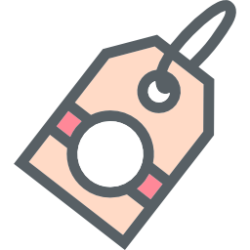Just One Photo at a Time
Why?
Make people who like your work pay attention.
How?
An app that only shows one picture – the last one you published. It will disappear when you post the next picture. Every time you publish a new picture, all your followers on this app (and other platforms like Twitter and Facebook) will receive notice of the new photo. They can and should save the picture if they want to keep it because when you publish your next one, it’ll disappear.
Start With the Needs and Wants Then Create the Ideas

Why?
Most projects start when someone has an idea he thinks will solve a problem. Then if he’s smart, he’ll try and test this assumption. What if we reverse the model?
How?
An online service where we invite people to come and tell us what they want or need and can’t find (or can’t find anything good or close enough.) When you get many these that are centered around what seems like a unifying problem, do a deeper dive with those people, asking them for more and more insight into what they really need/want, what is their true problem and motivation (emotional as well as functional.) Based on these a more coherent idea can be formulated and then tested more widely. This might help uncover much more such problems and ideas than just starting with a thought.
Create a Better Connection With Your Startup’s Target Audience

Why?
Building a new product or service relies on feedback from your target audience. Especially when initially testing quickly and repeatedly your assumptions and solutions.
How?
Either create yourself or partner with an existing public establishment (a coffee shop), and have a place where your target audience can hang and get special treatment (free or cheap food and drinks, comfortable armchairs, daily reading materials, and anything that makes them feel it’s “their private club”), in return for their participation and cooperation. A place where you can have planned meeting as well as ad-hoc ones (initiated by either side.)
Use Price Comparison to Your Advantage

Why?
If you are selling products or services that the buyers can see the prices of (books for instance) easily, you need to have the right juxtaposition to make them seem a great buy.
How?
Instead (or in addition) to showing them in the usual places (a book fair to continue the example above,) go to where your target audience is but where your products seem much cheaper compared to what is already exhibited there. So take the books that might appeal to wealthy people and show them at the yacht expo or luxury car exhibition. Compared to the prices of yachts and cars, even the most expensive book at full price seems like dirt cheap, and if you match the offerings to the target audience, you’ll get much more sales (then at a book fair.) Both people who can and might buy yachts, and those who can’t and just come to look, will have both a need to spend (especially if they can’t buy) and it’ll be a cheap price to pay for them to feel good.
A Smart Way to Helpnyou Succeed With Your Startup

Why?
Doing a startup is emotionally and psychologically hard.
How?
A service that offers continuous psychological help to startup founders and employees. You pick a permanent psychologist that seems to fit you and your team and get both fixed time with him, and ad-hoc help when you need it.
